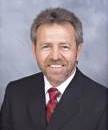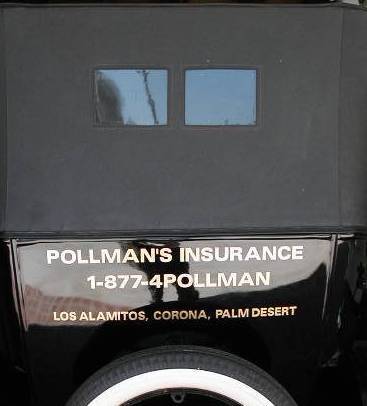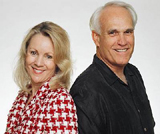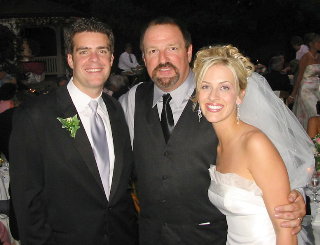
Become A Hero To LB Animals With A $20 Membership. Learn About Us, Click Here.

Saving Lives Thru Spay/Neuter & Education


3853 Atlantic Ave.
Read Rohrabacher Container Fee Bill For Security And More That Port Of LB's DC Lobbying Firm Said It Helped Defeat
Port's DC Lobbyists -- Paid To Rep City Hall Under Separate Contract -- Recite Port's Position On Bill At Council Meeting; We Post Extended Council Transcript + Congressional Record And House Vote
(August 10, 2005) -- On August 9, one day after the Port of LB's senior Washington, DC lobbyist told LB's Harbor Commissioners that his firm helped defeat a container fee bill [by Congressman Dana Rohrabacher (R., HB-LB-PV) that would have let Ports nationwide levy a container fee for infrastructure and security matters], E. Del Smith (whose firm is simultaneously paid to advocate City Hall's DC interests under a separate contract) stood at the City Council podium and recited the Port's arguments for opposing the legislation. Congressman Rohrabacher -- whose district includes the Port of LB -- had (for a second time) introduced a bill to add verbiage to an existing federal law that lets non-federal interests (Ports) levy harbor fees for specified purposes. Rohrabacher's legislation would have permitted, but not mandated, Ports to put fees on containers fees to help fund infrastructure and security items, arguably easing the cost for taxpayers. LBReport.com posts the full text of the legislation (with proposed text in bold font) below. LBReport.com also posts below an extended transcript of pertinent portions of the Aug. 9 Council meeting which included comments from Councilmembers Rae Gabelich and Frank Colonna, City Manager Jerry Miller and two members of the lobbying firm. On July 14, 2005, the Rohrabacher container fee bill reached the House floor. LBReport.com posts the Congressional Record of the proceedings below. The bill failed 111-310. In addition to Congressman Rohrabacher, Congressmembers Ed Royce (R., El Dorado-OC) and Loretta Sanchez (OC) voted "yes." Congressmembers Juanita LBReport.com also posts the recorded vote tally below. Language to be added to existing fed'l law in "boldface" (a) Consent of Congress Subject to the following conditions, a non-Federal interest may levy port or harbor dues (in the form of tonnage duties or fees or container fees) on a vessel engaged in trade entering or departing from a harbor and on cargo loaded on or unloaded from that vessel under clauses 2 and 3 of section 10, and under clause 3 of section 8, of Article 1 of the Constitution: (1) Purposes Port or harbor dues may be levied only in conjunction with a harbor navigation project whose construction is complete (including a usable increment of the project) and for the following purposes and in amounts not to exceed those necessary to carry out those purposes: (A)(i) to finance the non-Federal share of construction and
operation and maintenance costs of a navigation project for a
harbor under the requirements of section 2211 of this title; (ii) to finance the cost of construction and operation and
maintenance of a navigation project for a harbor under section
2232 or 2233 of this title; (iii) to finance the cost of construction and operation and maintenance of any infrastructure project for a harbor, including an infrastructure project outside the boundaries of the harbor if the project is for transportation to, from, or through the harbor; and' (B) provide emergency response and security services in the harbor, including contingency planning, necessary personnel training, and the procurement of equipment and facilities. Councilwoman Gabelich: [to Mr. Smith]...You reportedly said yesterday in your presentation to the Harbor Commission, that "there has been an effort to increase container fees, a piece of legislation that we helped defeat just recently." Yet that was part of the 710 Oversight Recommendations to use those fees for local environmental protection. And so my question to you is how can you serve two masters? How do you decide when you go to represent a bill, whose position takes priority? Mr. Smith: ...Our job is to work with the feasibility of a bill that we have found or been directed to execute. No conflict of interest between the Port and the City. We helped defeat the bill because the bill was ill-drafted. It was never gonna pass because it would have had to have the concurrence of all the seaports in the United States. There are already 125 fees on port already, taxes, the Congress would have never allowed this. And most of all, we were concerned in our office that, forget the Port and the City, the state of California would have feasibly been able to dip down, levy a fee on a container and take the money back to Sacramento. And it was with those factors that we joined the Port industry in defeating the bill. I'm hoping this answers your question, perhaps it doesn't. Councilwoman Gabelich: Would... City Manager Miller: [interjecting] Madame Mayor and Council, may I also just elaborate, and I would do so by referencing your policies and your procedures prior to adopting both state and federal legislative agenda which you do each year...and I think the value of your adopting a legislative agenda is that you are addressing the issues up front that you have concerns with or you want to make sure that you take a position on. And I think it's helped to organize staff's response to your policy direction, it's helped us to provide direction to Del Smith and to [Sacramento lobbyist] Mike Arnold... But what's unique and I think what's new to report to you is the Harbor, once you adopt your annual state and federal legislative agenda, will actually agendize your agenda, and they will review it and discuss it as a Harbor Commission as well. So getting to a point of alignment here, I think we have a much better chance than ever of making sure your policy direction is aligned with that of the Harbor Commission by way of the policy priorities that you set as a City Council. Councilwoman Gabelich: So would it be better to say that the Harbor Commission would be in line with the City Council's direction? City Manager Miller: Well I would hope so. Councilwoman Gabelich: Is that what you're saying? City Manager Miller: I would hope so. I think that either agreeing to review and to take action on your adopted state and federal legislative agendas that they are for the first time in my memory being open to your input and to your policy leadership. I don't know that always in all cases agree with you. I think that's a matter for us to deal with the exceptions that may occur as time goes on because of their unique responsibilities they could be somewhat different than your responsibilities. But if we have your policy direction in the form of such a legislative agenda at least we can get to what the difference are and have a meaningful dialogue with them as to their position versus your position. In turn, it makes it much easier for Del and for Mike to know what they need to do because you've already worked out the policy direction at the senior level. ...Councilwoman Gabelich [to Mr. Smith] And what you shared with me when I asked you this question earlier was that you would recuse yourself if there was a conflict? Mr. Smith: Yes,.and by the way in forty years there's never been such a conflict. But Councilwoman to fulfill your interest, I want you to hear from my colleague Sante Esposito who of course used to be with the Committee of Congress and wrote these bills... Mr. Esposito: In legislation the devil's in the details and Del is absolutely right. This particular issue was opposed by the administration, opposed by OMB, opposed by the American Port Association and opposed by the authorizing committee. The proposal would have imposed a fee but then made that money available to the states to decide how they wanted to spend it and I don't think that's what any port wants to have happen. That doesn't necessarily mean that the container fee issue, approached in a different way, wouldn't work but this particular proposal would not work, and it was defeated in two Congresses overwhelmingly on a bipartisan basis. Councilwoman Gabelich: You understand that the issue is that we've got to protect the communities that line the freeways that serve the Port and there isn't any money. So we have to find a way to do that, and so maybe with your help we can put something better together... Councilman Frank Colonna: ...[O]n the national container tax which I feel also was very flawed legislation. My biggest concern is none of it would ever get to us and I totally support what our Tier [Tier 2 I-710] Committee was looking to, and that is, if there is any type of a fee, or quote-unquote tax, but let's call it a container fee, that it makes its way here and stays in the local region so that we can apply those funds from those containers that come off those ships and work in our system here to help with our quality of life issues here in Long Beach and in our region. Because we're carrying the brunt of what I feel sometimes may be a bit unfair, because a lot of the other cities that are surrounding us benefit from the heavy lifting that the Port's been doing and literal degradation of our quality of life that's been occurring around us here... So I really feel that perhaps the next series of events as we have discussed in our conference that we had the other day, Sante, is that we put together a package of what we would like to try to accomplish now...We've got a hundred million dollars [for rebuilding the Gerald Desmond bridge], the door is open, we've got a great opportunity now to craft a long term message about how we want to deal with [in NLB, 710 noise and pollution], or issues that need to deal with a better operating freeway. We've also adopted "no net pollution increase" once we get this freeway built which is going to be one of our biggest challenges but it's correct and we need to do that, and of course work with the Port on their Green policy... The Acting CHAIRMAN. Pursuant to House Resolution 346, the gentleman from California (Mr. Rohrabacher ) and the gentleman from Tennessee (Mr. Duncan) each will control 5 minutes. The Chair recognizes the gentleman from California (Mr. Rohrabacher ). Mr. ROHRABACHER . Mr. Chairman, I yield myself such time as I may consume. I rise to offer an amendment to H.R. 2864 that will expand the scope of section 208 in the Water Resources Development Act of 1986. My amendment will allow our ports to levy a fee on containers and use that fee to pay for security and infrastructure at the ports. The Rohrabacher amendment will facilitate the effort to modernize and secure American ports. In my district, the ports of Long Beach and Los Angeles handle approximately 44 percent of all of the goods delivered to American shores, yet they are in constant need of revenue for facilities, improvements and upgrades to roads and bridges and rails. Our marine terminals are invaluable commerce infrastructure, not only to our country but also for the many foreign manufacturers who sell primarily in the U.S. market. This is the portal through which foreign manufacturers deliver their goods to our markets. Yet these manufacturers provide almost none of the costs of operation or upkeep of these vital assets. This system, as it currently operates, is a subsidy to foreign manufacturers, paid by the American taxpayer, concealing the true cost of imported goods. What we have here is all backwards. What we are in effect doing, as the system works, is putting a tariff on products that are made in America. Section 208 of WRDA currently allows ports to charge fees on tonnage and use those fees to fund infrastructure improvements. This section is hardly, if ever, invoked by the ports to raise funds due to the fact that it is complicated to collect and tends to be too unwieldy to be used effectively. My amendment allows the ports to use a simpler and more efficient method: Fees on containers. The market-based fee in my amendment is simple to implement and to track, should be more widely used to raise funds for port projects. My amendment will also permit these fees to be used for homeland security projects at the ports, as well as infrastructure. And let us be frank, the security threats that emanate from our ports come from foreign cargo. Why are we paying for their threat? If they want access to our markets, overseas manufacturers should pay the cost to ensure the safety of their deliveries. For too long the funding of marine terminals has been a one-way street with the American taxpayer footing the bill for the factory owners of Shanghai, Beijing and Macau while American manufacturers have been subsidizing their own competition. Our port facilities should have the freedom to levy a market-based container fee which will provide new revenue and make our system more equitable to the American taxpayer and American manufacturers. The Rohrabacher amendment is the most efficient way to achieve these goals. The Rohrabacher amendment says we are on the side of the American taxpayer, and those people who run overseas to manufacture in China and elsewhere should be paying their part of the cost to make sure that that system, our port system, is working. I would expect that people on both sides of the aisle would be supporting this. Unfortunately, our port systems, our ports, the people who run them, would rather come to the American taxpayer and get stipends from us rather than asking for a just fee to those manufacturers in China to pay for some of the costs that are required to ship their goods through our ports. This is an American versus foreign vote here. Whose side are we on? Who is going to pay the bill? Right now if our people go overseas and build their manufacturing plants, we end up subsidizing that by permitting them low-cost ways of getting their goods right into our market and undercutting the American producers who stayed behind to hire American people. I would ask people on both sides of the aisle to seriously consider this. Do not listen to the ports who simply want more taxpayer subsidies. Let us let the people who use this system, the foreign manufacturers, pay their fair share. Mr. Chairman, I reserve the balance of my time. Mr. DUNCAN. Mr. Chairman, I yield myself such time as I may consume. The gentleman from California is one of the best friends I have in this Congress, and I certainly have great admiration and respect for him, and I sympathize with everything that he has just said; but I must regretfully state the position of the committee at this point, which is in opposition to this amendment. The civil works program of the Army Corps of Engineers provides Federal assistance for dredging entrance channels and harbors and the Department of Homeland Security now offers grants for security projects. But, generally, capital improvements to port infrastructure are a non-Federal responsibility. The gentleman's amendment would permit a non-Federal interest, which could be the port authority or the State generally, to collect a fee per container that moves through the harbor and to use those funds for security purposes or for infrastructure projects within the port or any transportation infrastructure outside the harbor. First, if the goal is to help ports, this amendment is unnecessary. Ports can already charge fees for services under the authority of section 208 of the Water Resources Development Act of 1986, which they can use to help them with the cost of security and port infrastructure. Second, this amendment goes too far by allowing the collected funds to be used for transportation projects outside the port. This could mean potentially a State fee paid by shippers of containers at ports being used to pay for highway and rail projects elsewhere in the State. This is why the American Association of Port Authorities and even the gentleman's home port of LA/Long Beach oppose this amendment. The Subcommittee on Water Resources and Environment held a hearing on this bill in November 2003. The American Association of Port Authorities, the Waterfront Coalition, and the World Shipping Council all testified in opposition to this proposal. This amendment is the same as the amendment the gentleman from California brought to the House floor last Congress. It was defeated by a vote of 359-65. The committee believes that the ports can and should charge whatever fees they believe are necessary to cover their security needs and infrastructure projects. They have the authority to do that now, and Congress should not dictate how they make this business decision. I can assure the gentleman that I would like to work with him on some of the broader section 208 issues to see if we can better address his very legitimate concerns. We certainly sympathize with the gentleman's amendment. The gentleman's amendment is well-intentioned, but at this point the committee position is to urge our colleagues to oppose this amendment. Mr. Chairman, I yield 1 minute to the gentlewoman from Texas (Ms. Eddie Bernice Johnson). (Ms. EDDIE BERNICE JOHNSON of Texas asked and was given permission to revise and extend her remarks.) Ms. EDDIE BERNICE JOHNSON of Texas. Mr. Chairman, I rise in opposition to the amendment.
This amendment is virtually the same as the amendment offered by the gentleman to the Water Resources Development Act of 2003, and which was defeated by a vote of 65 to 359. The arguments against this amendment are the same, and unfortunately the gentleman from California has not addressed the concerns raised by the Committee on Transportation and Infrastructure the last time this amendment was offered. I can understand the gentleman's interest in supporting additional investment in our Nation's ports and harbor infrastructure, but I do not believe that this amendment is the best way to achieve that goal. Port authorities currently have the authority to collect fees for the services they provide, as provided by section 208 of the Water Resources Development Act of 1986, and decisions of the Supreme Court. These fees can be used for services provided, and the construction, and operation and maintenance of, or emergency response services for navigation projects for a harbor. The fees contemplated by the Rohrabacher amendment would be available for ports and States to use for any infrastructure project, including infrastructure outside the boundaries of the harbor, if the project is for transportation to, from, or through the harbor. This could be any road, rail, or even airport project associated with the harbor. It could also include the locks and dams on the inland waterway system. This amendment could encourage ports or States to view containerized cargo as a simple source of revenue, in effect, a hidden tax to finance any and all transportation modes. While I support the efforts of our Nation's port facilities to provide intermodal connections between the ports and the highways and rail systems that move goods to their final destinations, I believe that it is inappropriate to establish a fee system where the containerized cargo industry could be supporting other transportation modes. In addition, this amendment is described as a way to pay for much-needed security enhancements at our Nation's ports. However, in effect, the revenue raised by this amendment would be limited to only those in conjunction with the construction, operation, and maintenance of a navigation project or other infrastructure, and would cease to exist once these projects were complete. It would not provide a long-term solution to reducing the vulnerability of our Nation's ports. I urge my colleagues to oppose the amendment.
Mr. ROHRABACHER . Mr. Chairman, I yield myself the balance of my time. The establishment has set up a system that we have built a Frankenstein monster in China by ensuring that jobs and manufacturing are going to China. I do not know why that is, I think that was a horrible decision, but it is time for us to start backing away from that policy. The most important way to start backing away from the policy of taking American jobs and shipping them to China, building the economic strength of China, the first step to take is to make sure that those people who go to China to manufacture are paying the cost of shipping their goods into America's markets rather than having the taxpayer provide that for them at the expense of our own manufacturers. I would ask people on both sides of the aisle, let us turn around this policy, change the basic policy on China, vote ``yes'' on the Rohrabacher amendment.
Mr. OBERSTAR. Mr. Chairman, I must oppose the amendment of the gentleman from California, Mr. ROHRABACHER , in its current form. While I congratulate the gentleman for seeking ways to enhance the availability of resources to address security and infrastructure needs, I believe that his proposal is too broad. The proposal would amend the authority contained in the Water Resources Development Act of 1986 for ports to charge fees to recover a portion of their costs associated with port deepening projects. That authority was carefully crafted to ensure that the fees that were charged on a vessel were associated with improvements and activities at the port. This amendment allows for fees to finance activities well beyond the confines of the port. The amendment specifically allows for the imposition of fees on containers and for those proceeds to be used for financing the cost of construction and operation and maintenance of infrastructure outside the boundaries of the harbor. This is simply too broad. The amendment would allow for the imposition of container fees to finance highways or rail expansion, with the only requirement being that the project go to, from, or through the harbor. This could certainly benefit other transportation modes, but it would do so on the back of container traffic. This proposal needs further review. We can look at the passenger facility charges currently used in the aviation program as a model. There, Congress working in collaboration with aviation interests developed a financing mechanism that has benefited airports, the airline industry, and air passengers. But, we did not allow these revenues to become the financing mechanism for a wide variety of infrastructure projects. I would be pleased to work with the gentleman on his proposal, participate in hearings, and work with interested parties. But, in its current form, I oppose the gentleman's amendment.
Mr. DUNCAN. Mr. Chairman, I yield back the balance of my time. The Acting CHAIRMAN (Mr. Simpson). The question is on the amendment offered by the gentleman from California (Mr. Rohrabacher ). The question was taken; and the Acting Chairman announced that the noes appeared to have it. Mr. ROHRABACHER . Mr. Chairman, I demand a recorded vote...
H R 2864 RECORDED VOTE 14-Jul-2005 2:11 PM AUTHOR(S): Rohrabacher of California Amendment QUESTION: On Agreeing to the Amendment
Contact us: mail@LBReport.com |
    
|